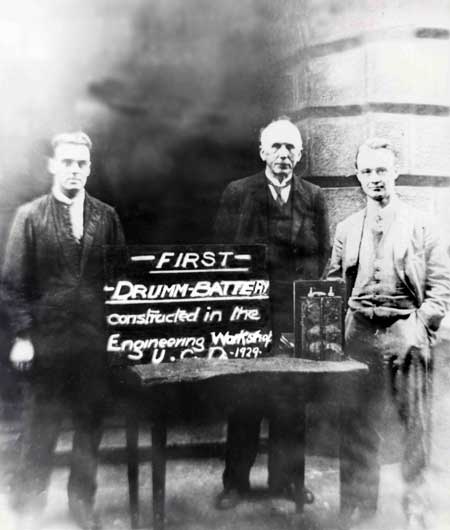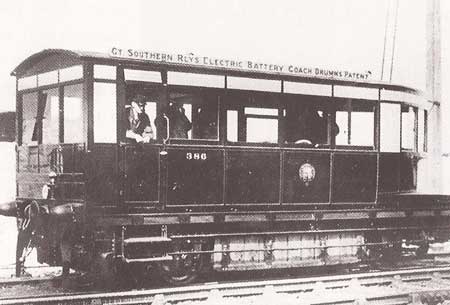1930–1939
Son of an RIC constable based in Dundrum, Co Down, James Drumm (1896-1974) received a B.Sc. from UCD in 1917 and an M.Sc. the following year. He worked abroad as a research chemist before returning to UCD to conduct research under the supervision of Professor John J. Nolan.
Drumm’s doctoral research, in which he developed a rechargeable alkaline battery capable of rapid and frequent charging and discharging, made him famous. With the advent of electricity from the new Shannon scheme, the use of rechargeable batteries in railway traction was particularly appealing to the government, and the Drumm Battery Company was established. Following successful testing, in 1932 the first ‘Drumm train’ began regular operation from Amiens Street (now Connolly) station to Bray, with charging stations at both ends of the line. The trains were highly valued by the government because they were not reliant on coal. This was important during the economic war with Britain (1932-38) and again during the second world war. The Drumm trains continued to run successfully until 1949, when replacement costs in the face of cheaper alternatives led to the decision to discontinue the service.
Throughout his career, James Drumm continued his involvement with science and industry. He was a member of the Industrial Research Council from its foundation in 1934, of the Emergency Scientific Research Bureau during the war years and a member of the NUI Senate from 1935-59.


 Above: Drumm train
Above: Drumm train